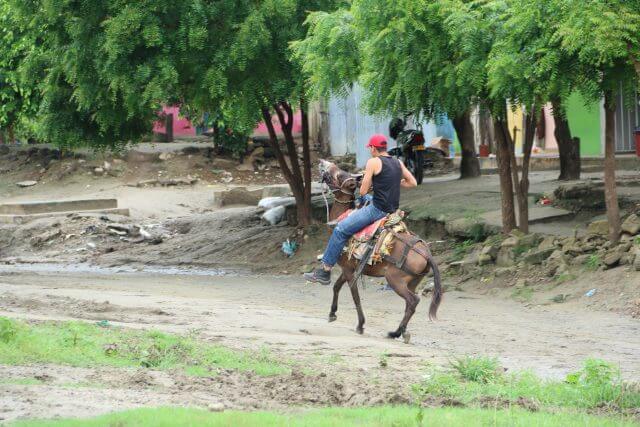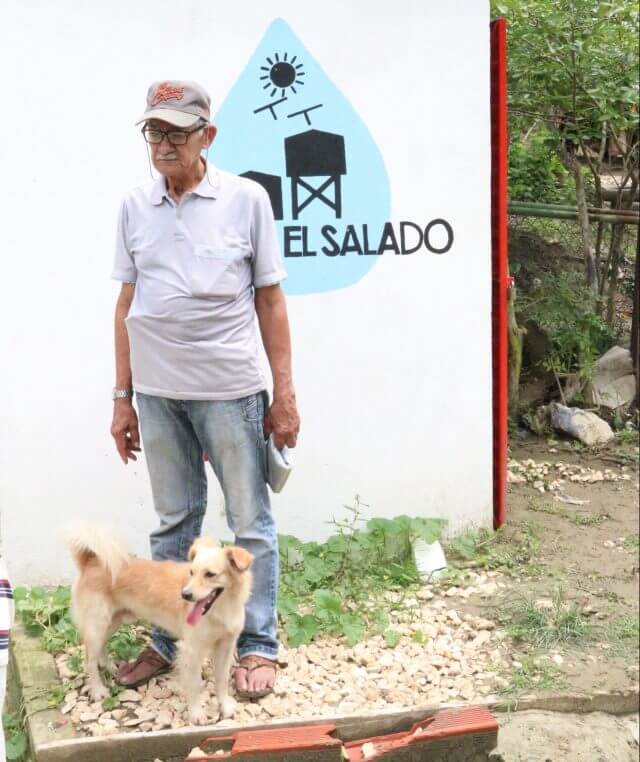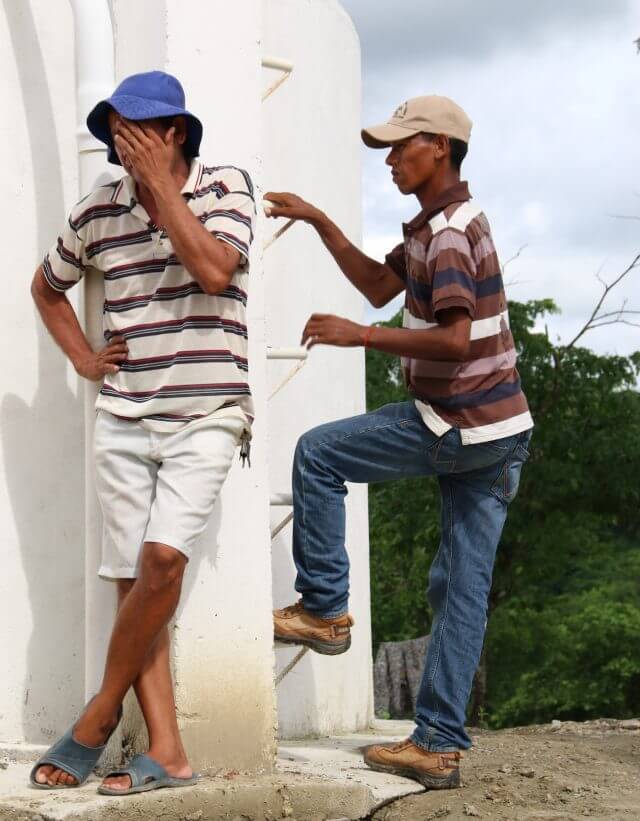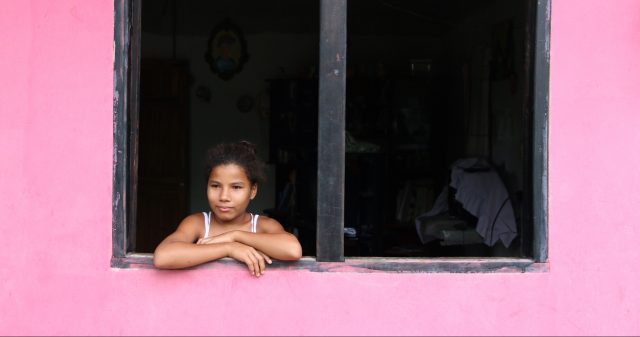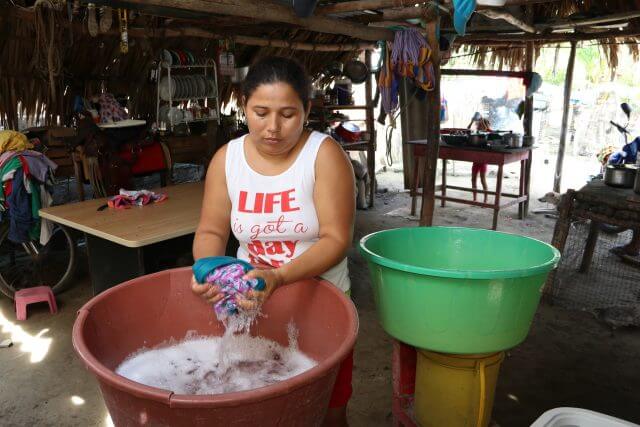El Salado
Peace through water
The Novel
What we wanted with this graphic novel was to tell the story of the water in El Salado through the eyes of a family living in this community.
El Salado, a graphic novel about the triumph of a community and a social project
The idea behind this graphic novel is to follow the journey of water as though it were a storyline that guides us through the tale of a family from EL Salado who, like the rest of the community, are struggling to recover their homeland and their past.
Much has been written about the events that took place in this Colombian community, most of it focusing on the paramilitary attack on the village in the year 2000 and how the inhabitants were forced to flee. Our story, however, goes a little further, reaching the point where the characters and their hopes and desire to overcome become intertwined. A tale about the trials and tribulations of families who return to their homeland in the search of a way to heal their wounds, exacerbated by conflict, and overcome obstacles in their quest for water.
The language of the graphic novel is steeped in magical realism, in homage to the Colombian author Gabriel García Márquez, while the images are influenced by the poignant, powerful tales of Japanese animator and director Hayao Miyazaki. The combination of the two forms the basis for a literary proposal that, while it remains true to life, shares a dimensional plane that is inspired by the cosmogonic vision of the Sinú, or Zenú people, where deities from the natural world interact with humans.
The Novel
The making of
“Our story reflects real events, but with a dimensional level infused with cosmic energy.”
Hermanos Jiménez, Sharpball Team
The Novel
The characters
-
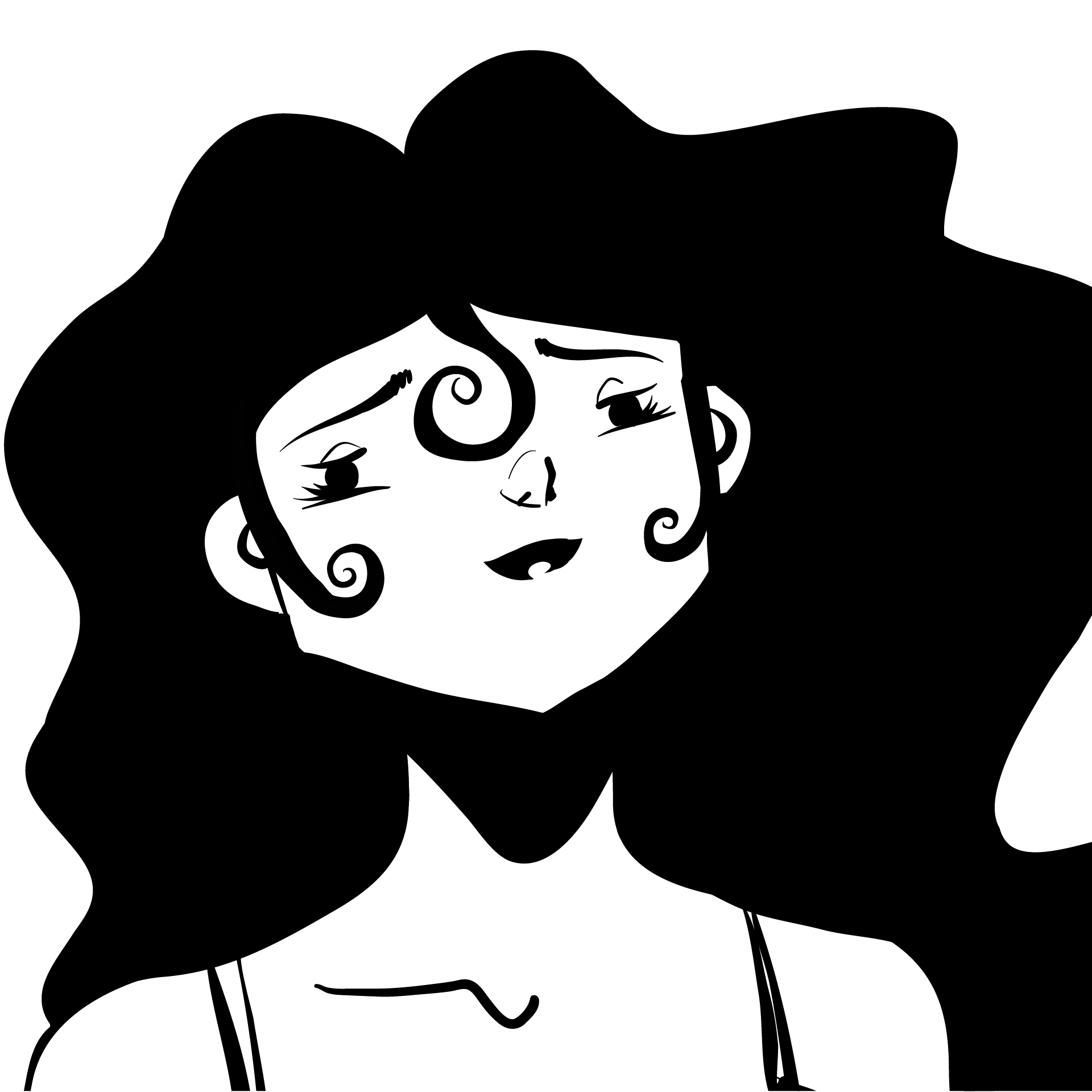

Matilde Matilde
The mother. Mathilde is a very decisive, determined woman. Her greatest strength is her ability to keep a cool head when the going gets tough. She is the reasoning, reflective side of the partnership.
In the beginning, despite being pregnant, she was the one who stood out as the leader and was able to exert an optimistic, positive influence on the townsfolk. She is both hard working and committed to the El Salado project, aspects that also combine to make her very demanding.

-
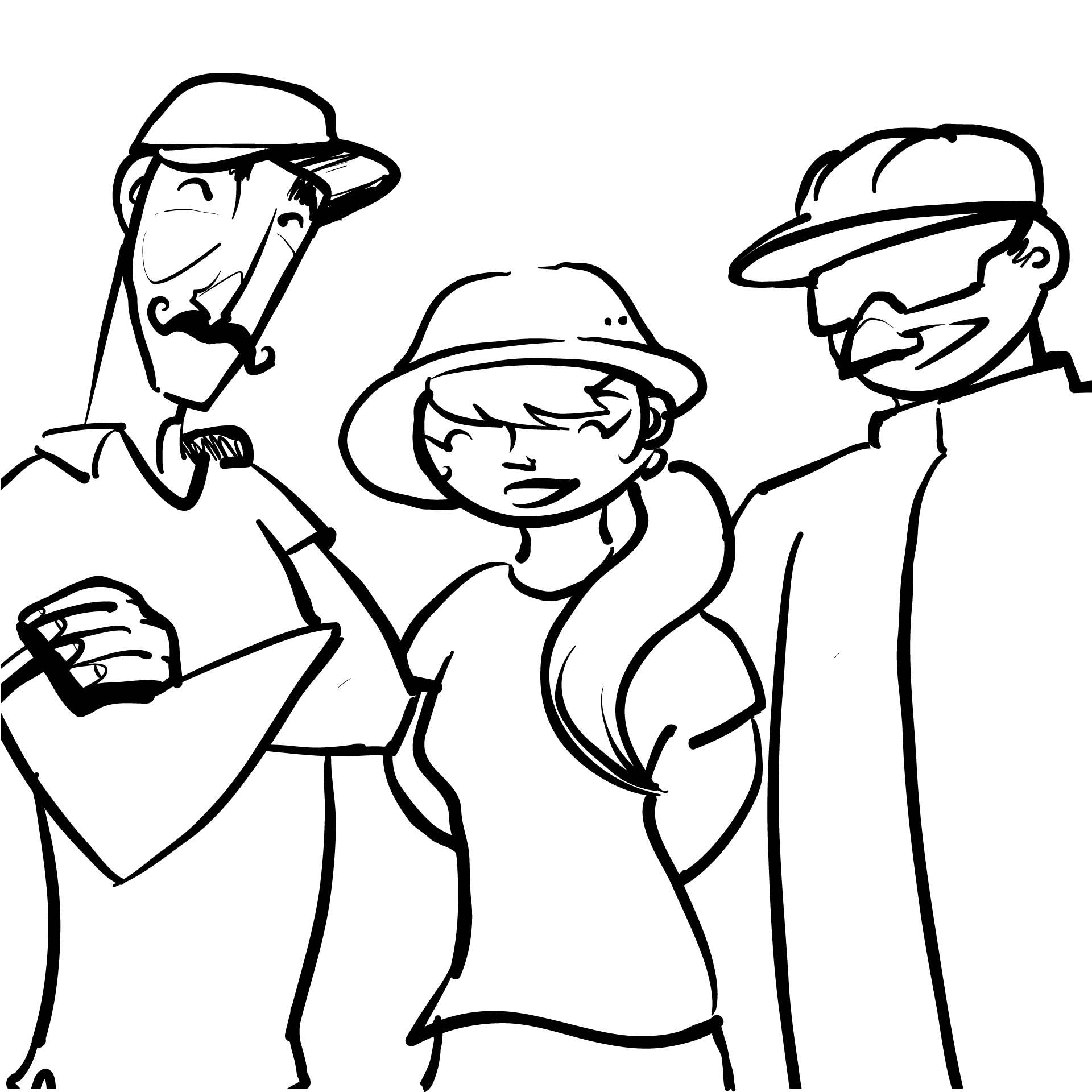
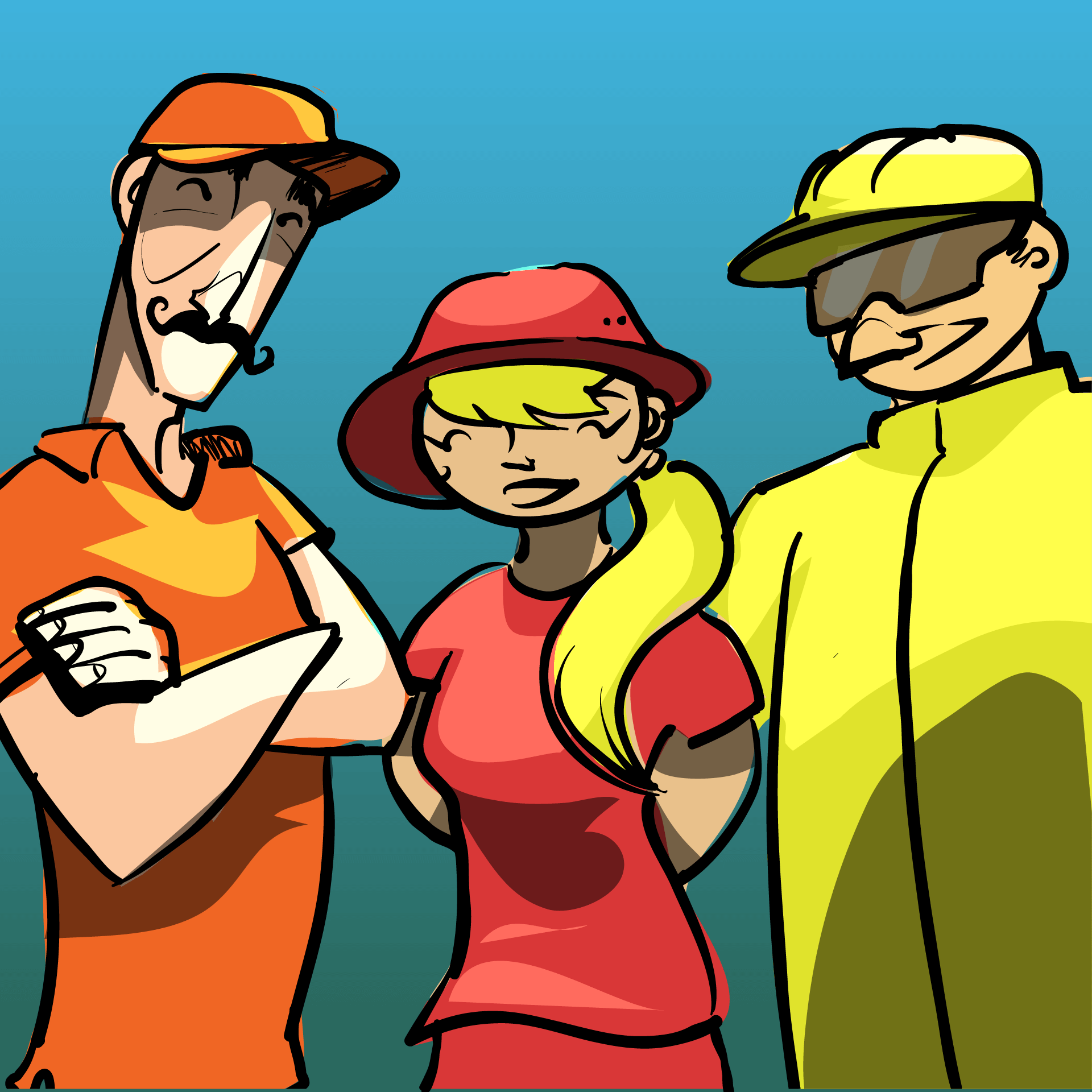
The Delegates The Delegates
The Volunteers and the Organisations. In the novel, the Delegates represent the NGOs and other organisations that implement social programmes in an effort to assist the communities where they operate. In our story the Delegates represent Ferrovial, Ayuda en Acción and the Semana Foundation, three key organisations in the recovery of El Salado and, more specifically, in the efforts to provide the community with access to clean drinking water.
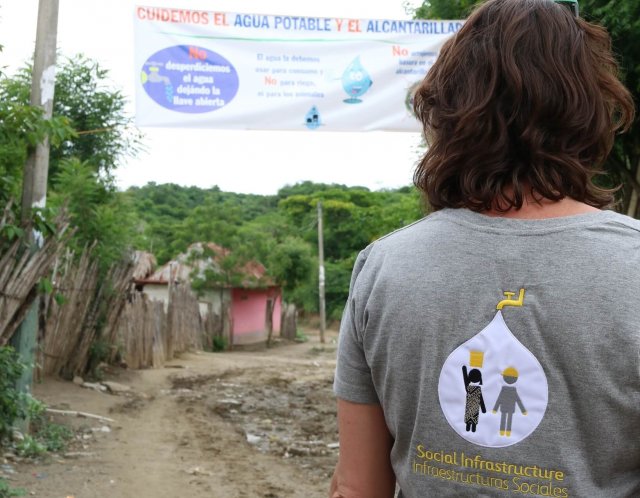
This project was just one of those selected from the Ferrovial Social Infrastructures Programme for 2016. With an investment of 162,000 euros the restored aqueduct system is now powered by an installation of solar panels and is the only one of its kind in Colombia. In conjunction with Ayuda en Acción and the Semana Foundation, Ferrovial has focused its efforts on the refurbishment and extension of the supply system and the creation of an organisational structure, the Water Council, for the maintenance and ongoing development of the same.
As a result of the project the 1290 inhabitants of El Salado now enjoy quality drinking water – the infrastructure includes a chlorination system – which will have obvious benefits for the infant population of the community. Aside from providing financial support, a group of volunteers from the company also took part in both the design of the infrastructure and the provision of personnel training in order that the community may become self-sufficient in terms of administration and maintenance.
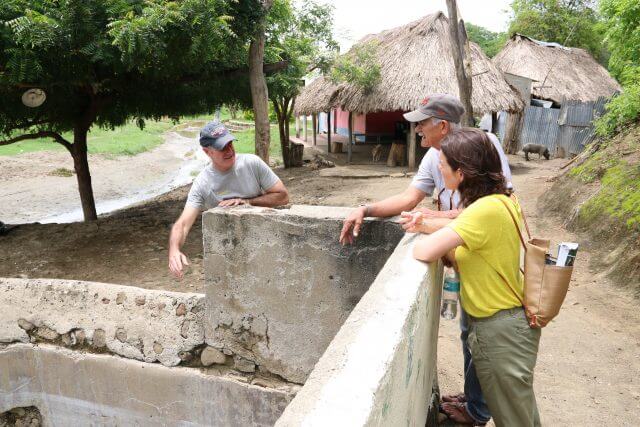
-
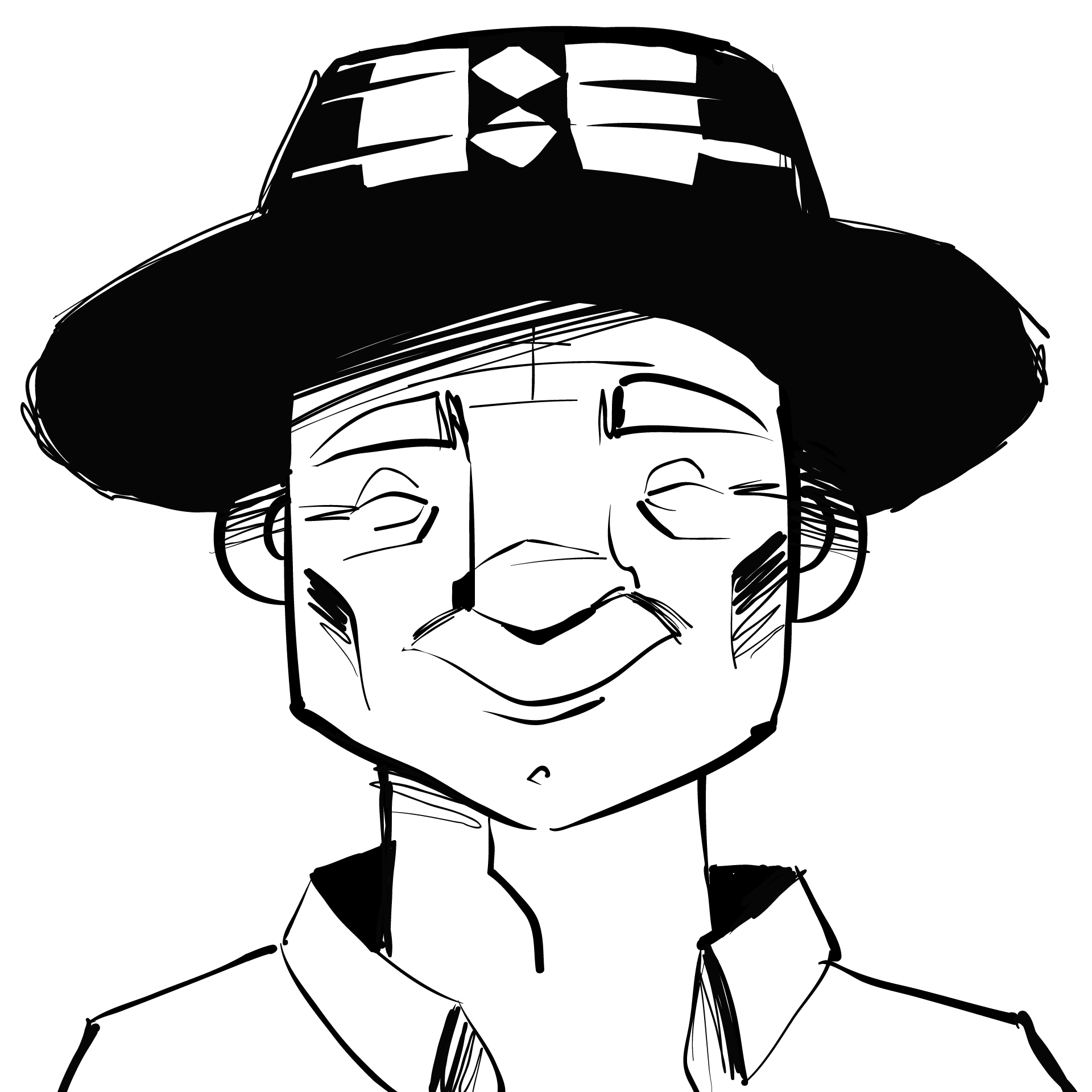
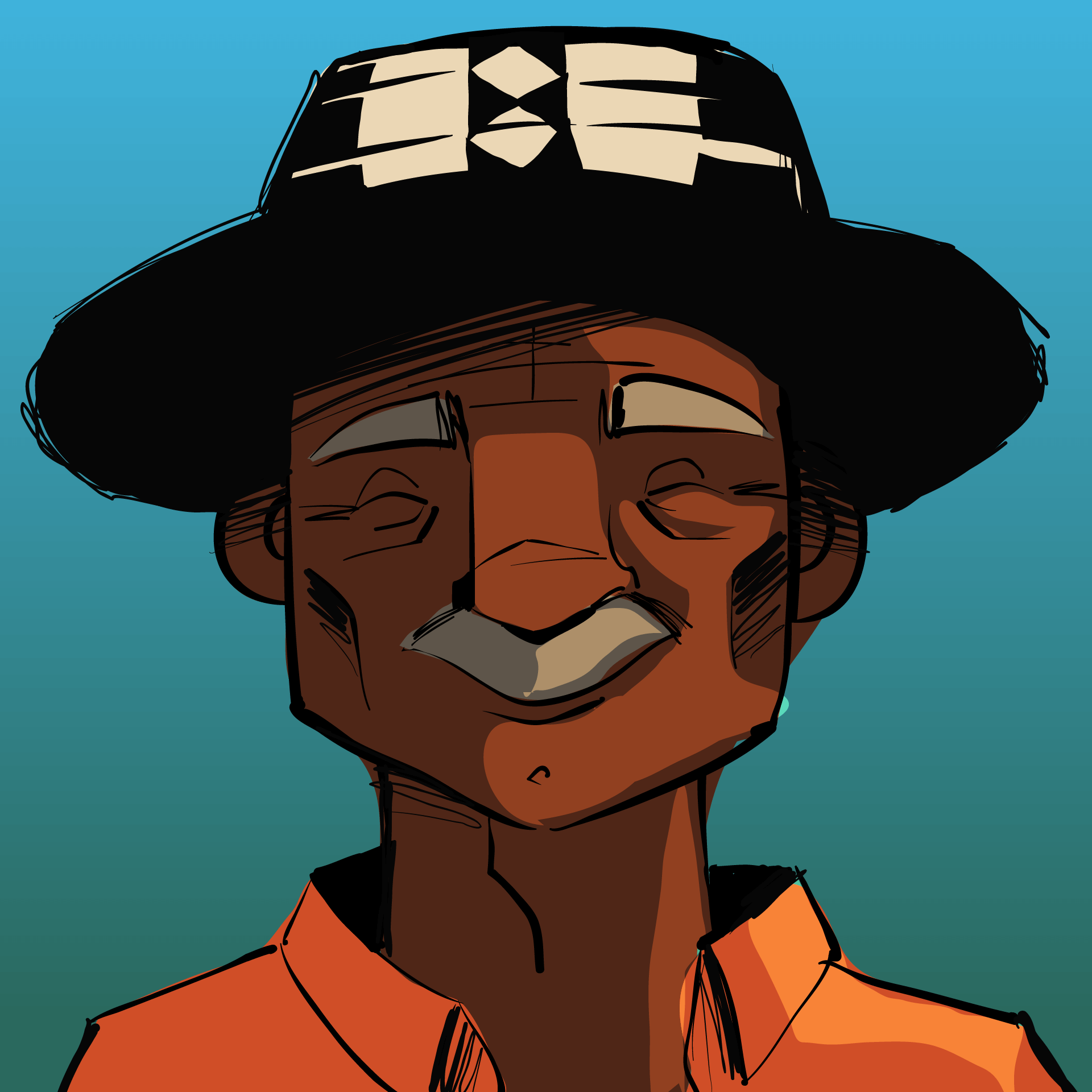
“Don” Emiliano, the elder “Don” Emiliano, the elder
The village grandfather. He represents the bridge between knowledge of the past and our future legacy. While a serious man, and the possessor of unrelenting physical strength, he is also astute and exhibits a keen sense of humour. His role is that of both storyteller and catalyst of the efforts invested in the project.
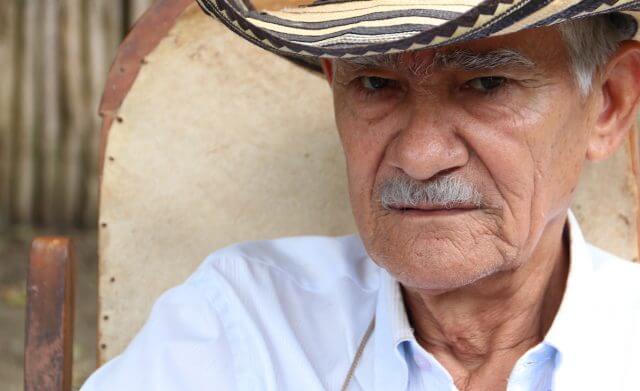
This is a character inspired by Luis “Lucho” Torres, the leader of the El Salado community who, in 2001, took it upon himself to reunite some of his countrymen and recover their lands. “Lucho” organised the return of the people to their homeland and today lives peacefully in the Carmen de Bolívar region. “We organised ourselves for one reason, to return to our homeland. We created a new life project for the reestablishment of El Salado”.
-
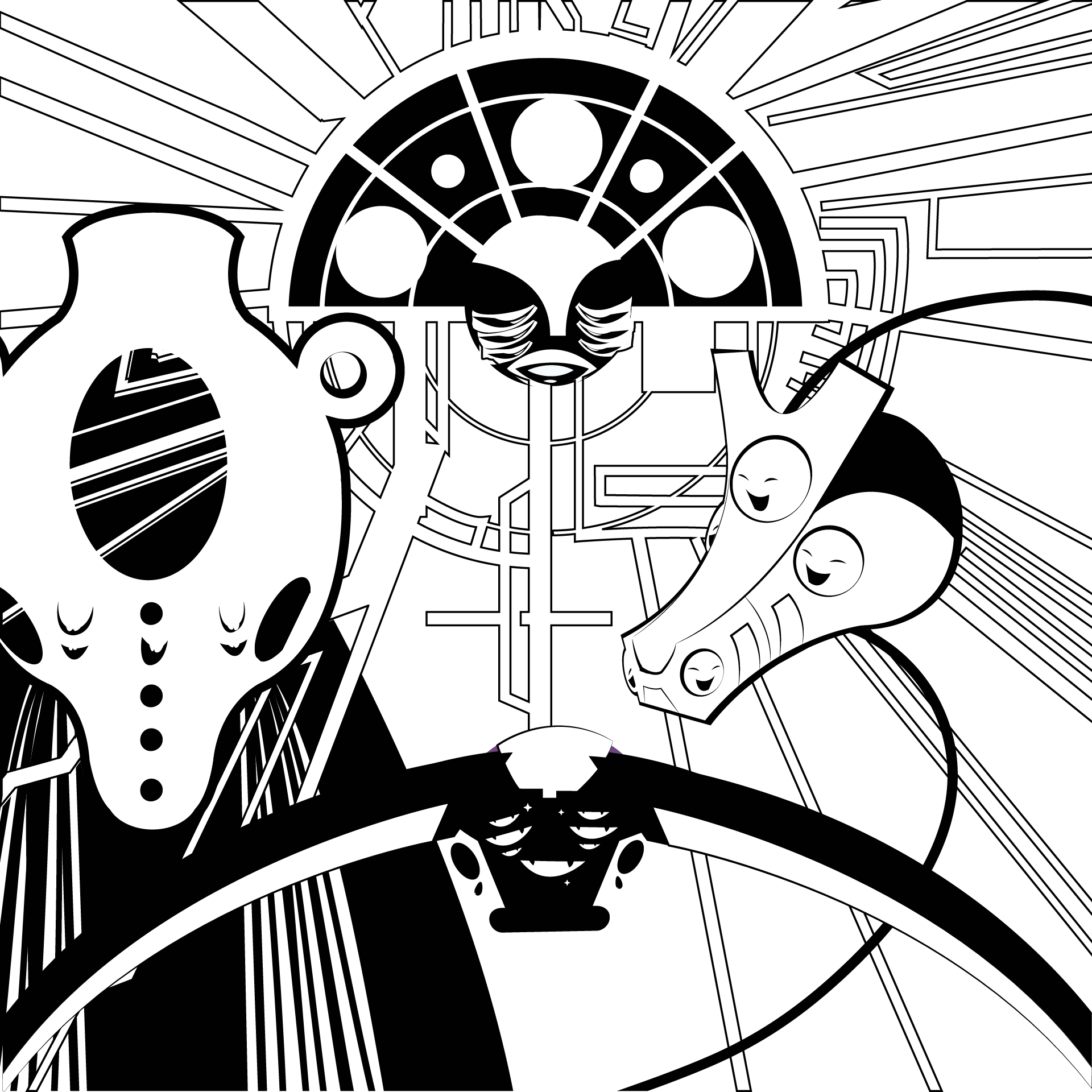
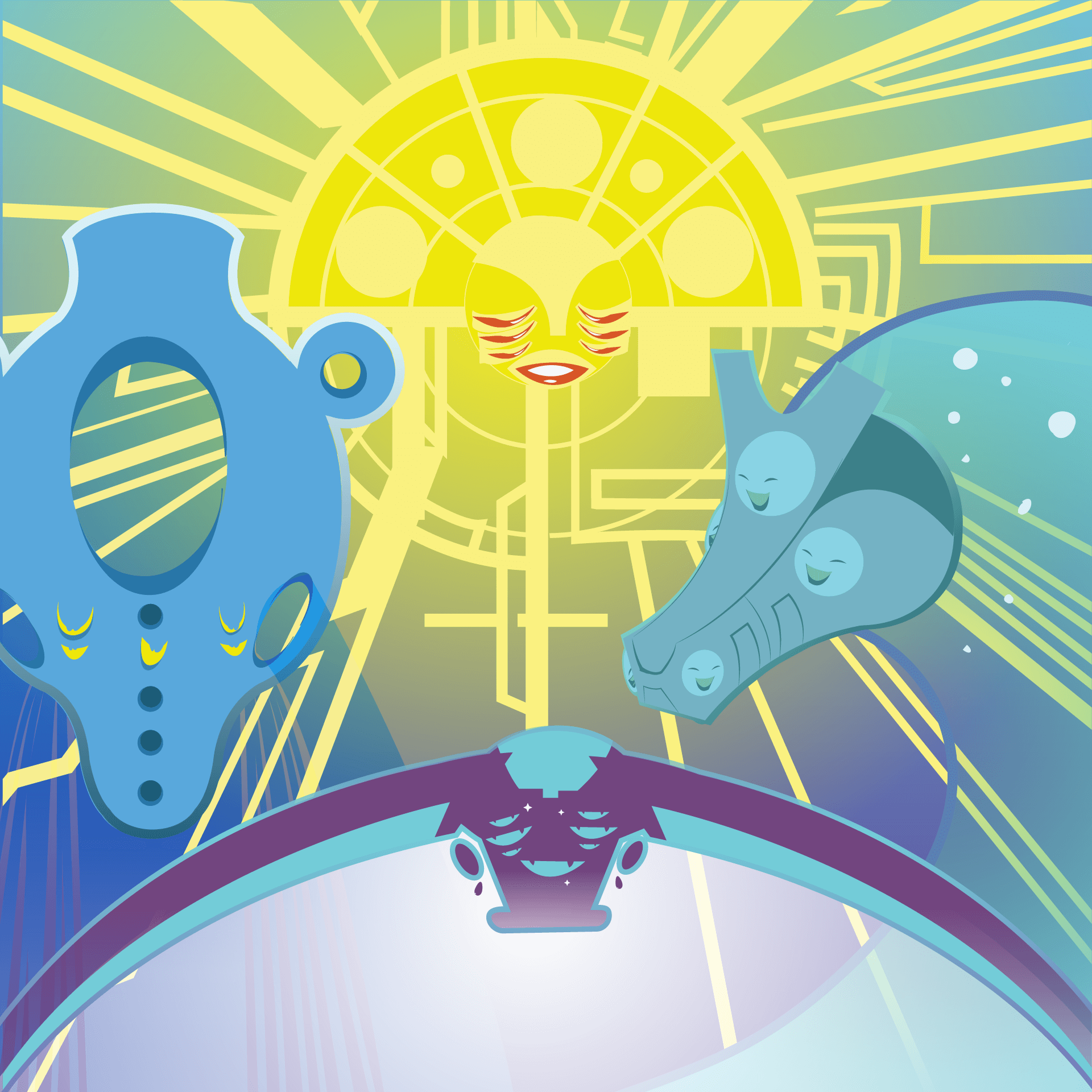
Los Encantos (traditional spirits) Los Encantos (traditional spirits)
Cosmic manifestations of the elements, they are inspired by the cosmogenic vision of the Zenú people, the ancient inhabitants of the region.
They represent the harmony of these people with the natural world, the sacred relationship with water, and respect for ancestral tradition.
As part of our story we will learn about the birth of a new Encanto, created on the basis of the experience of the townsfolk with NGO delegates and businesses. This particular Encanto represents human ingenuity and modernity combined with natural balance.
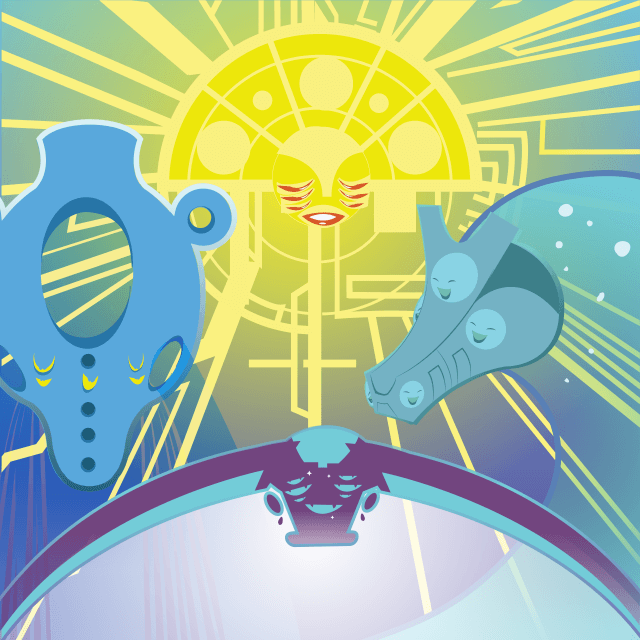
-
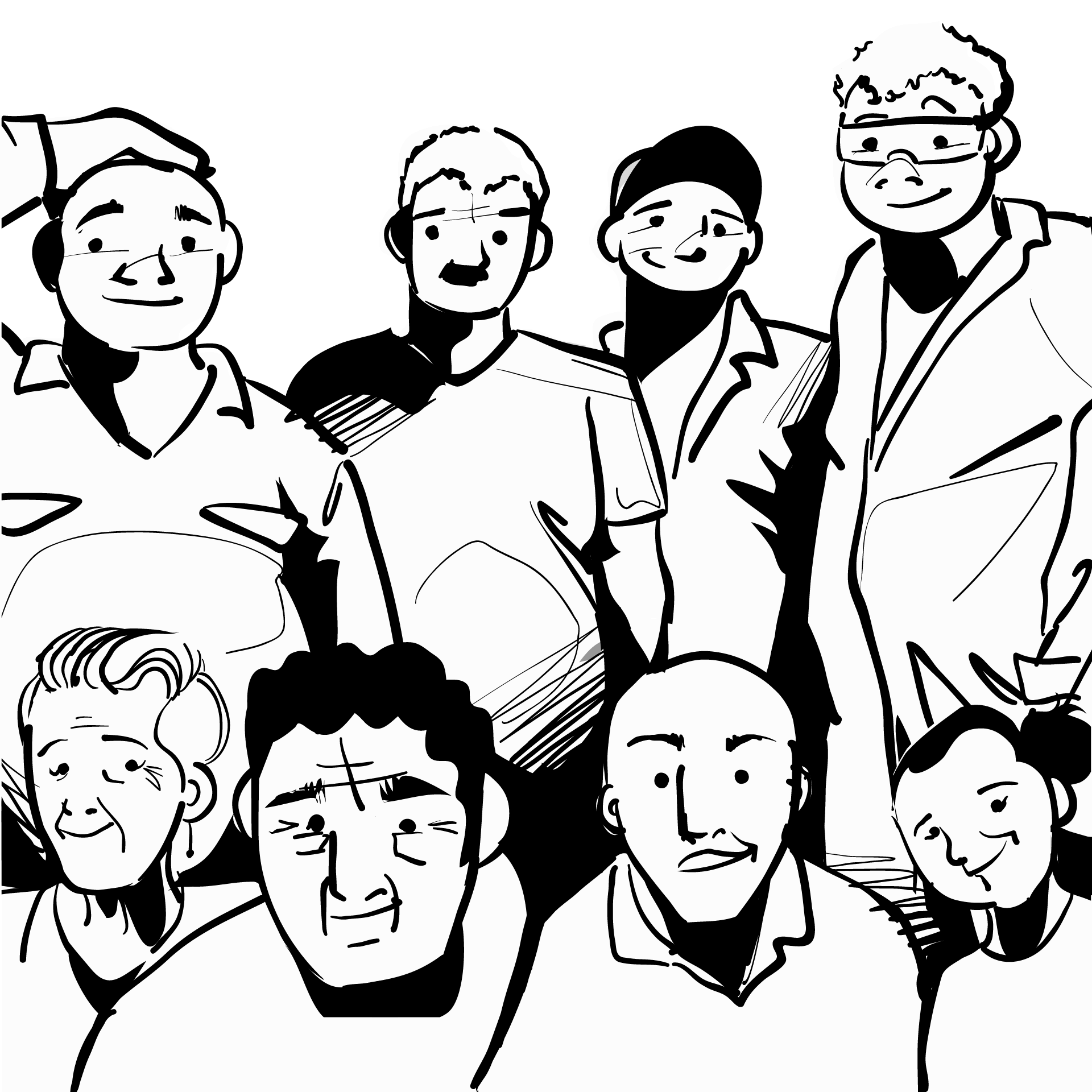
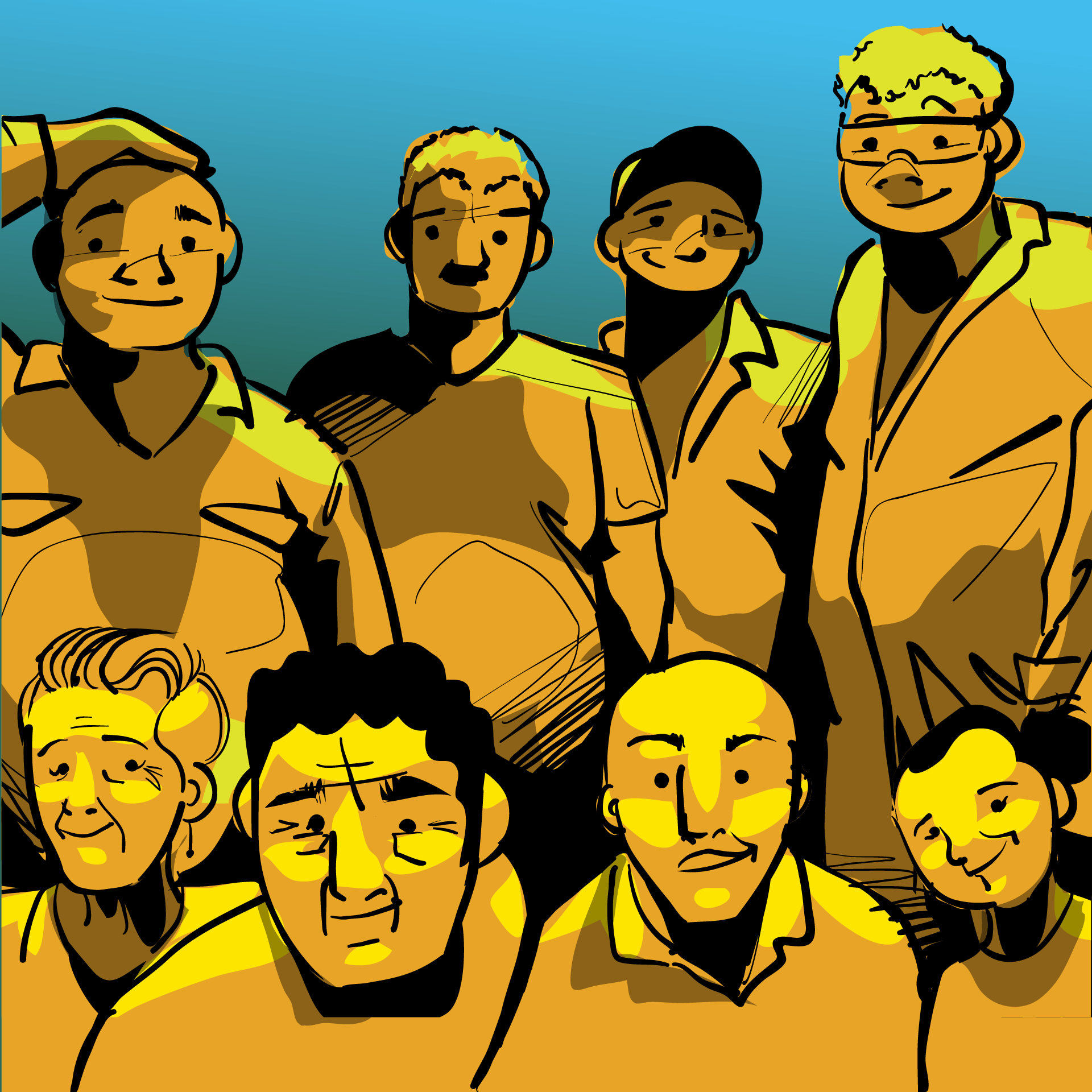
The Salters, the people of El Salado The Salters, the people of El Salado
The village. Represents the united people of El Salado – together, forever, for the resolution of conflicts.
The people of El Salado originated in the Colombian region of Montes de María, both a veritable pantry in terms of natural food resources and a direct route to the Atlantic, but also a strategic corridor for the country’s armed groups and a natural exit route for contraband goods.
We always thought the confrontation would be between the guerrillas and the paramilitaries, but that was not the case
“Lucho” Torres, the leader of the community.
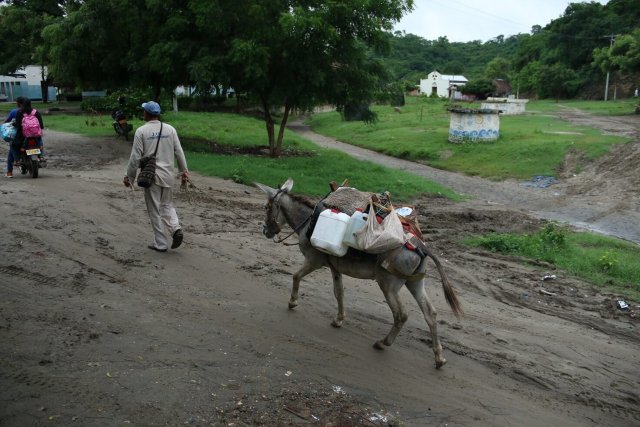
A second opportunity began for the people of EL Salado with the return of the displaced villagers, organised by “Lucho” himself, and their resolve to recover their lands. Humanitarian aid also played a significant role in this recovery.
These characters reflect the solidarity of the people in terms of offering support in times of crisis and facing difficulties with a united front.
-


Carmen Carmen
The daughter. She represents the time that elapsed between the moment of the conflict surrounding the relocation of the saladeros (salters) and their subsequent return to the home town and the implementation of the water project. In her first days, Carmen helped us realise just how fragile we are in the face of adversity.
Later on, when the personality inherited from her parents began to emerge, she would be the one who would set an example of how the people can unite in order to overcome difficulties and institute a change in mentality, thereby helping to ensure wellbeing for future generations.

-
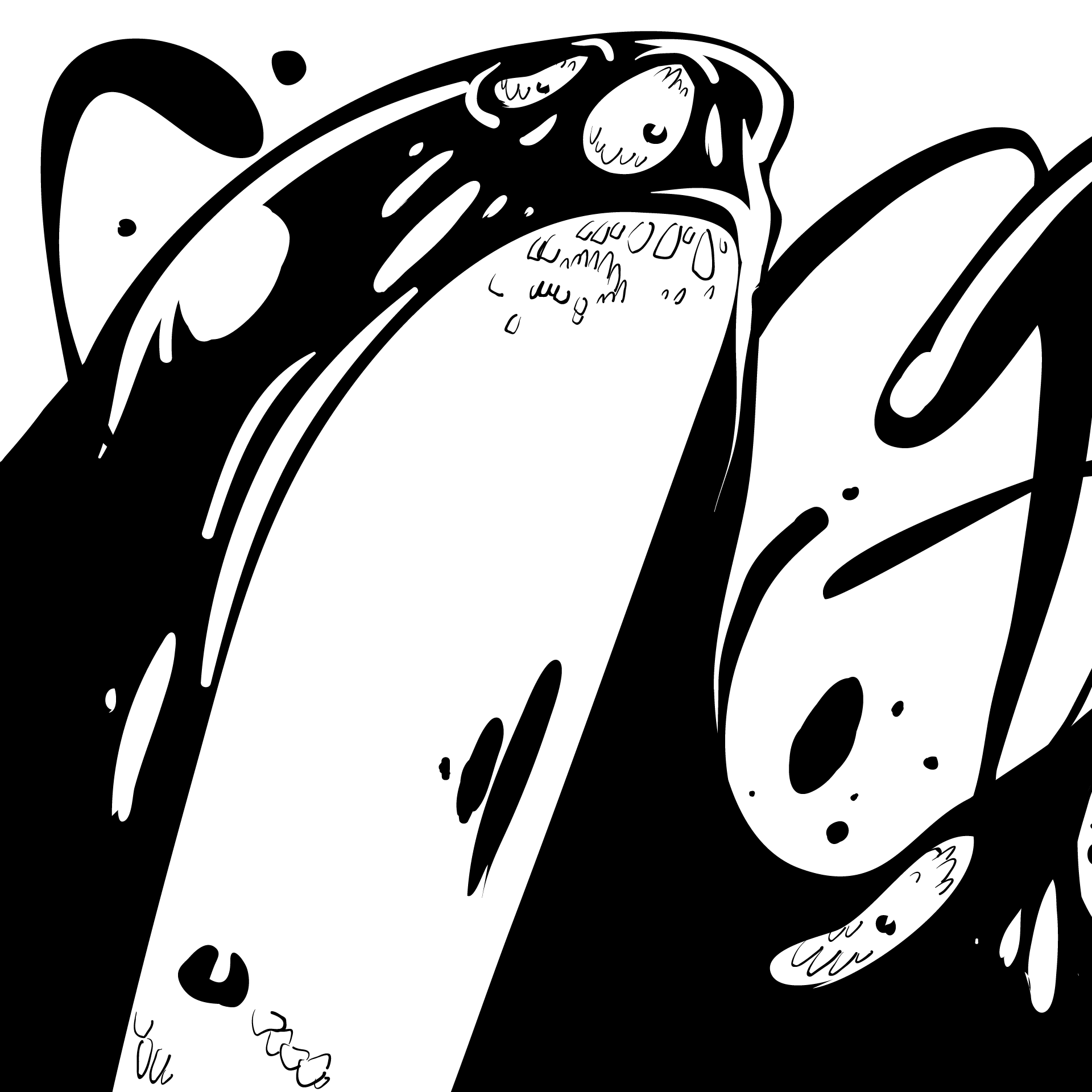
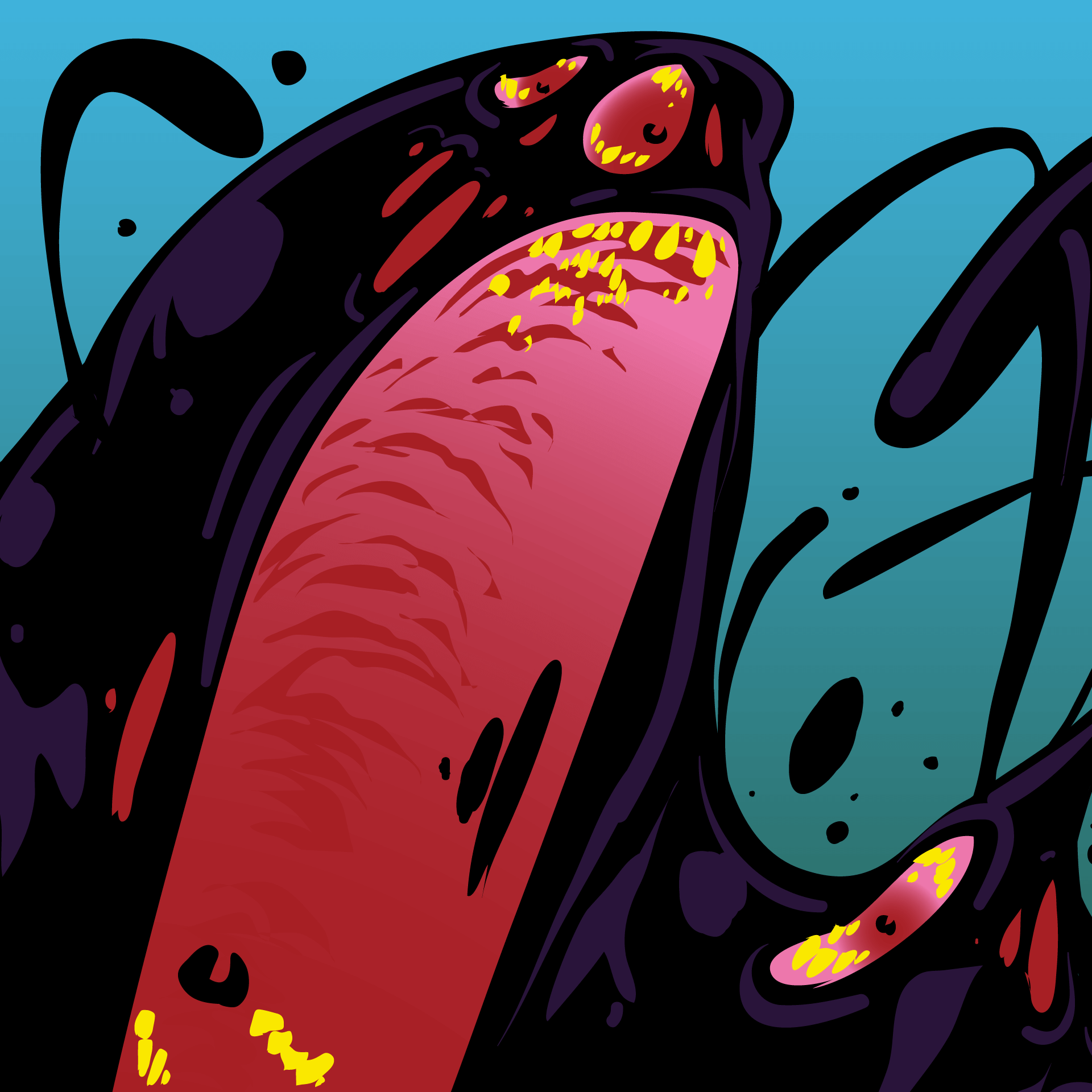
The Zaperoco The Zaperoco
Conflict. The opposing forces of history. The Zaperoco represents mankind’s violence against itself and the natural world. It is a shapeless entity that appears to be composed of dark energy; a force that contaminates and harms everything it touches, devouring all in its wake.
For the manner in which it enters our story and how it is to be vanquished, the artists expressed their desire to represent the self-defence actions of the people of El Salado in the form of a graphic novel.
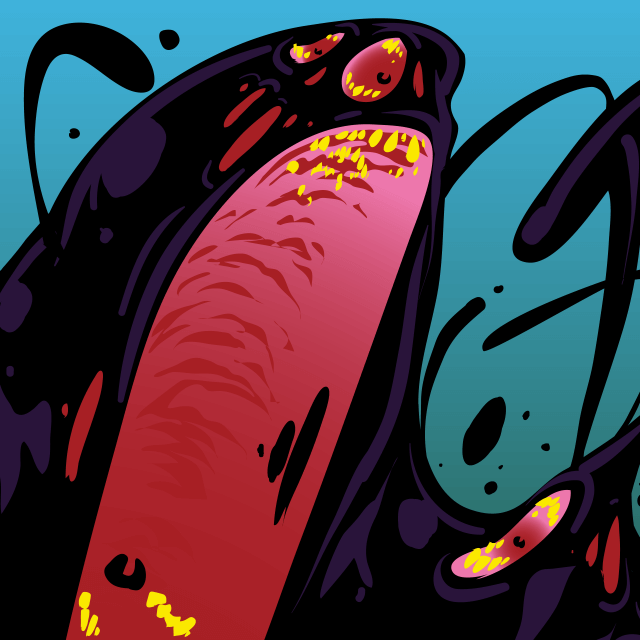
-
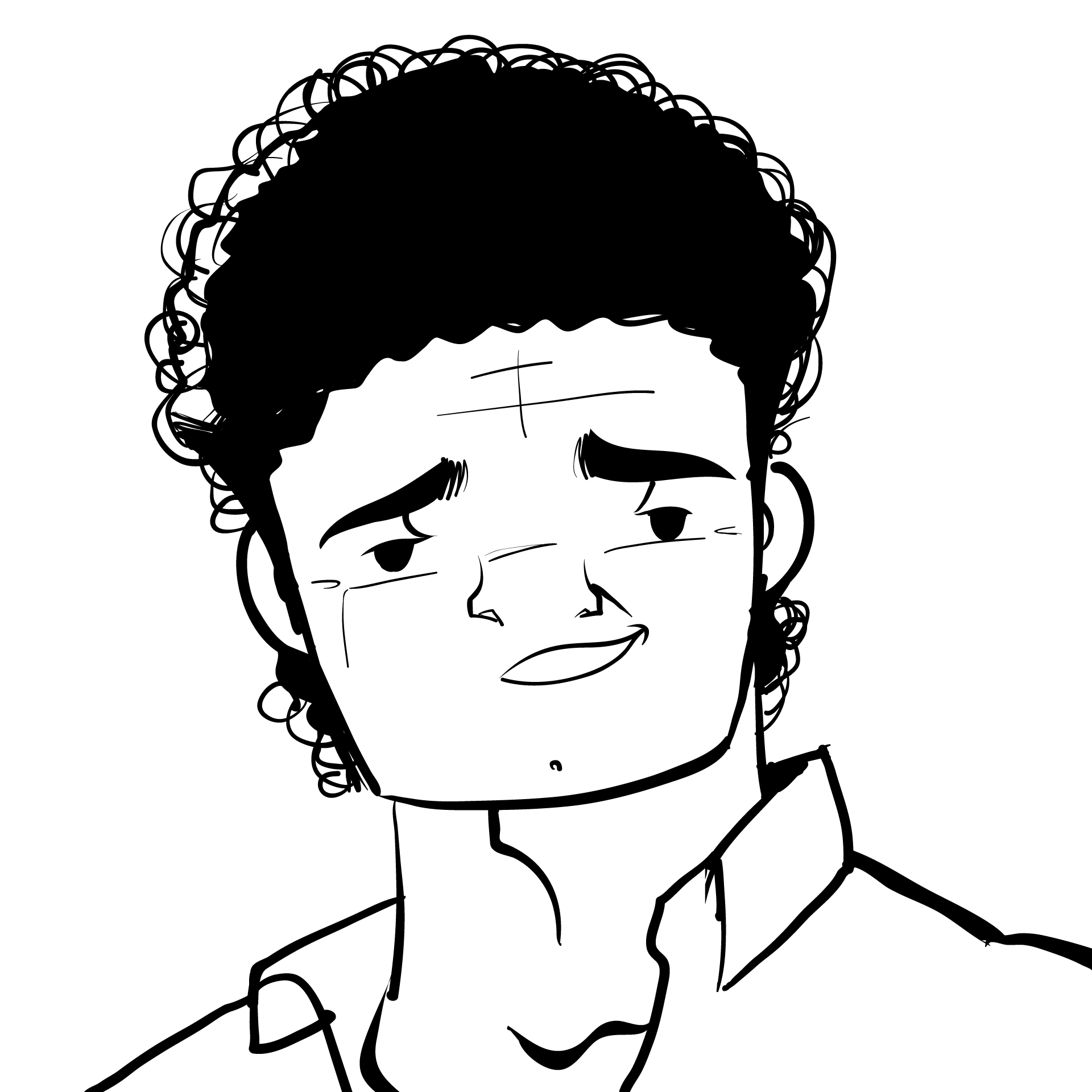
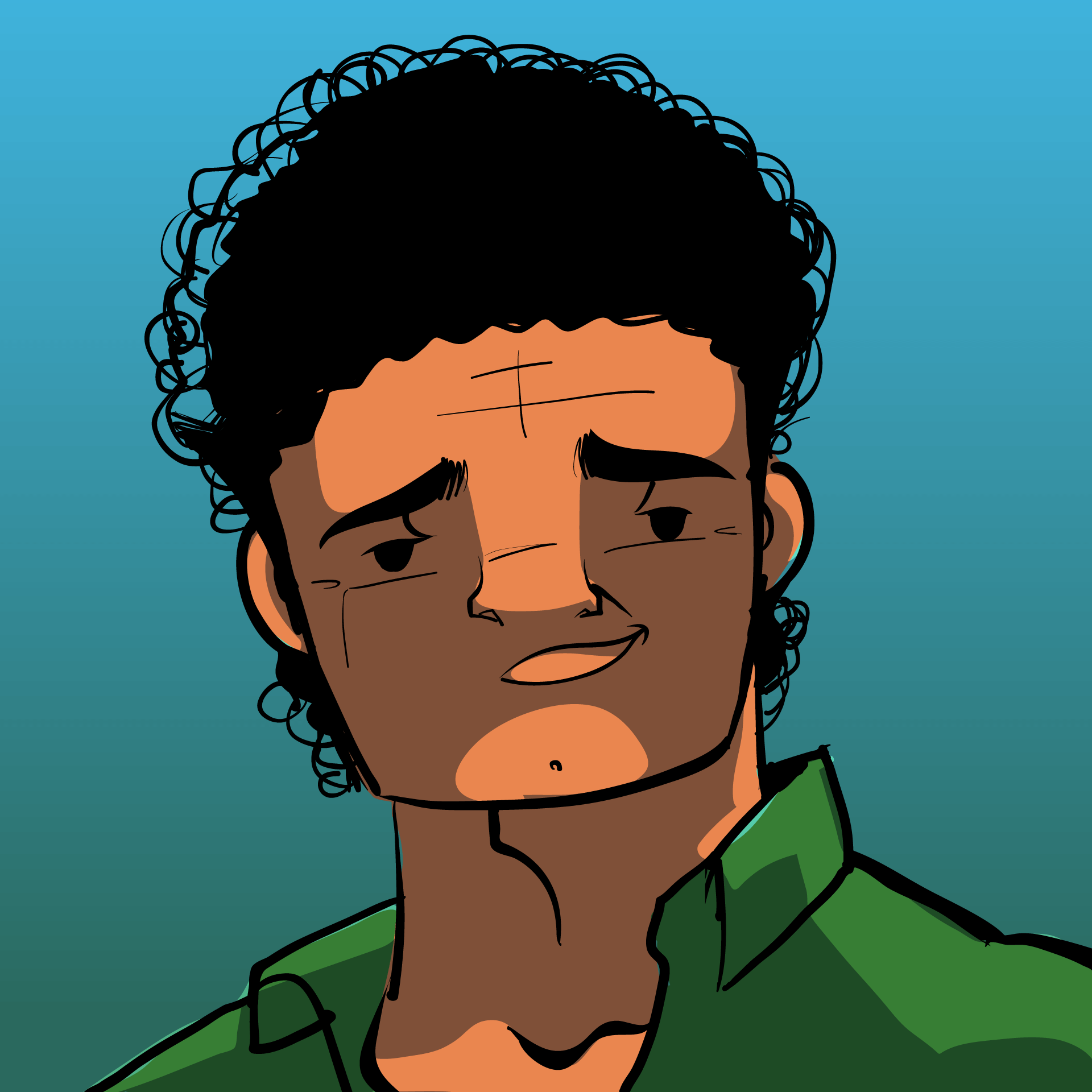
Frank "The Tank” Núñez Frank "The Tank” Núñez
The father. We know him as the skinny, unassuming child who wanted to be a football player but grew up to become a brave, tenacious man with a fervent commitment to his family and his home town.
While he possesses an explosive character that can make him a little rash at times, his noble, humble nature is revealed by the decisions he makes and, above all, through his actions in relation to the project.
His fortitude is contagious and his sense of humour is a source of motivation. This is the man who provided the energy needed to recover the El Salado project.
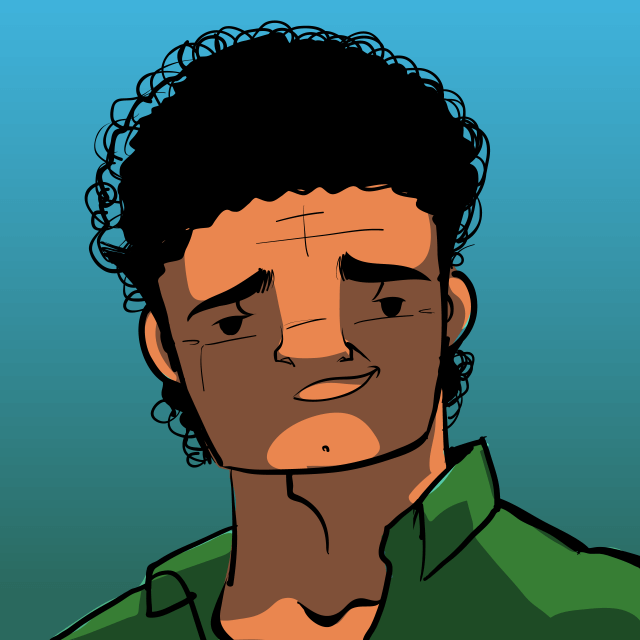
The Novel
The result
El Salado, water for peace.
A graphic novel about hope and a community overcoming the odds. The journey of water runs in parallel with the tale of a family from El Salado struggling to recover their past.
Our land
Historically, Montes de María was always a poor region, but its abundance of food made it known as the “breadbasket” of the Caribbean.
Historically, Montes de María was always a poor region, but its abundance of food made it known as the “breadbasket” of the Caribbean.
Historically, Montes de María was a poor region, but its abundance of food made it known as the “breadbasket” of the Caribbean. Food production was in the hands of smallholders with an extensive knowledge of the resources available in their lands. The farmer community (smallholders and landless peasants) of Montes de María have always been a dignified people, aware of their resources and proud of their social importance for the region.
The corregimiento of El Salado is located 19 km from the capital of the municipality of Carmen de Bolívar, to which it belongs. Historically, this community was one of the most prosperous in the region in terms of quality of life, due mainly to high income levels deriving from the growing of tobacco and other agricultural products.
The prosperity of El Salado meant that it had quality infrastructures, with educational and health facilities and good homes. It even had its own police post until the mid-1990s, together with storage centres for the collection, selection, pressing and packing of tobacco, in which the women from the community worked. Financial resources brought in by tobacco guaranteed high incomes for this rural area, a very reasonable standard of living, a thriving trade, and productive commercial employment.
Our land
Legacy from the past
“The generations that came before us left us a wonderful and prosperous life. But then we were affected by the violent conflict in Colombia, and the history of El Salado was too."
Luis Torres "Lucho"
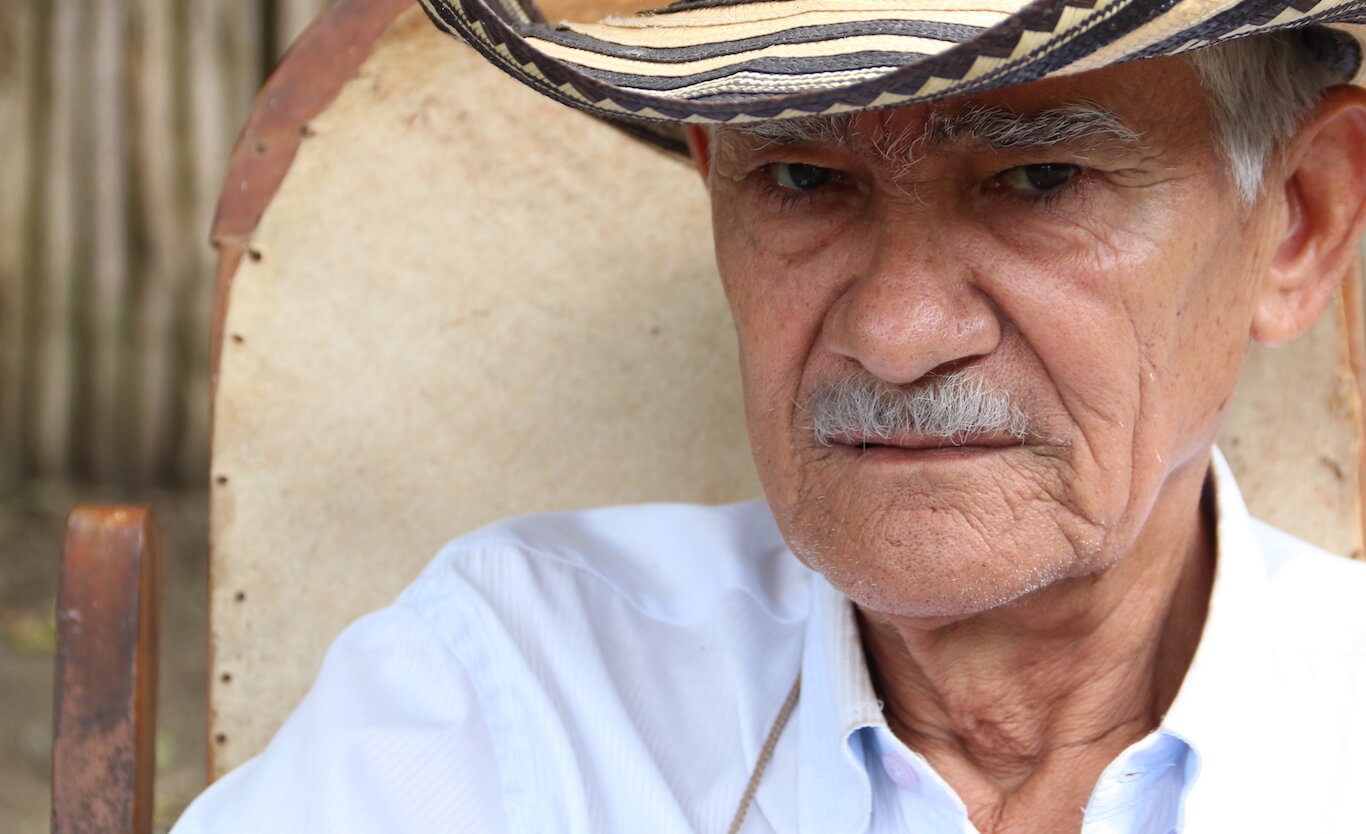
Our land
Background information
The prosperity of El Salado meant that it had quality infrastructure, with health and educational facilities.
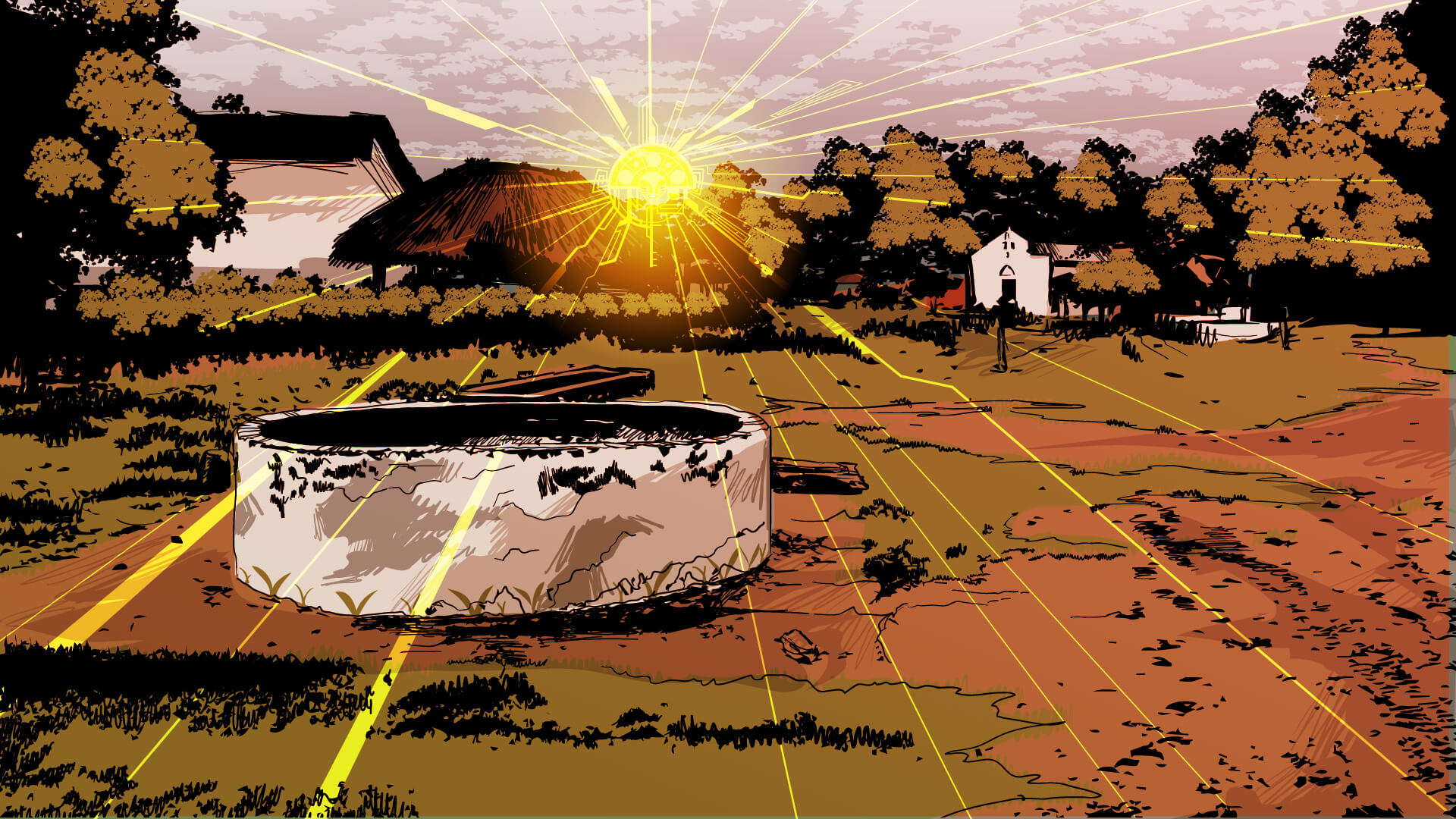
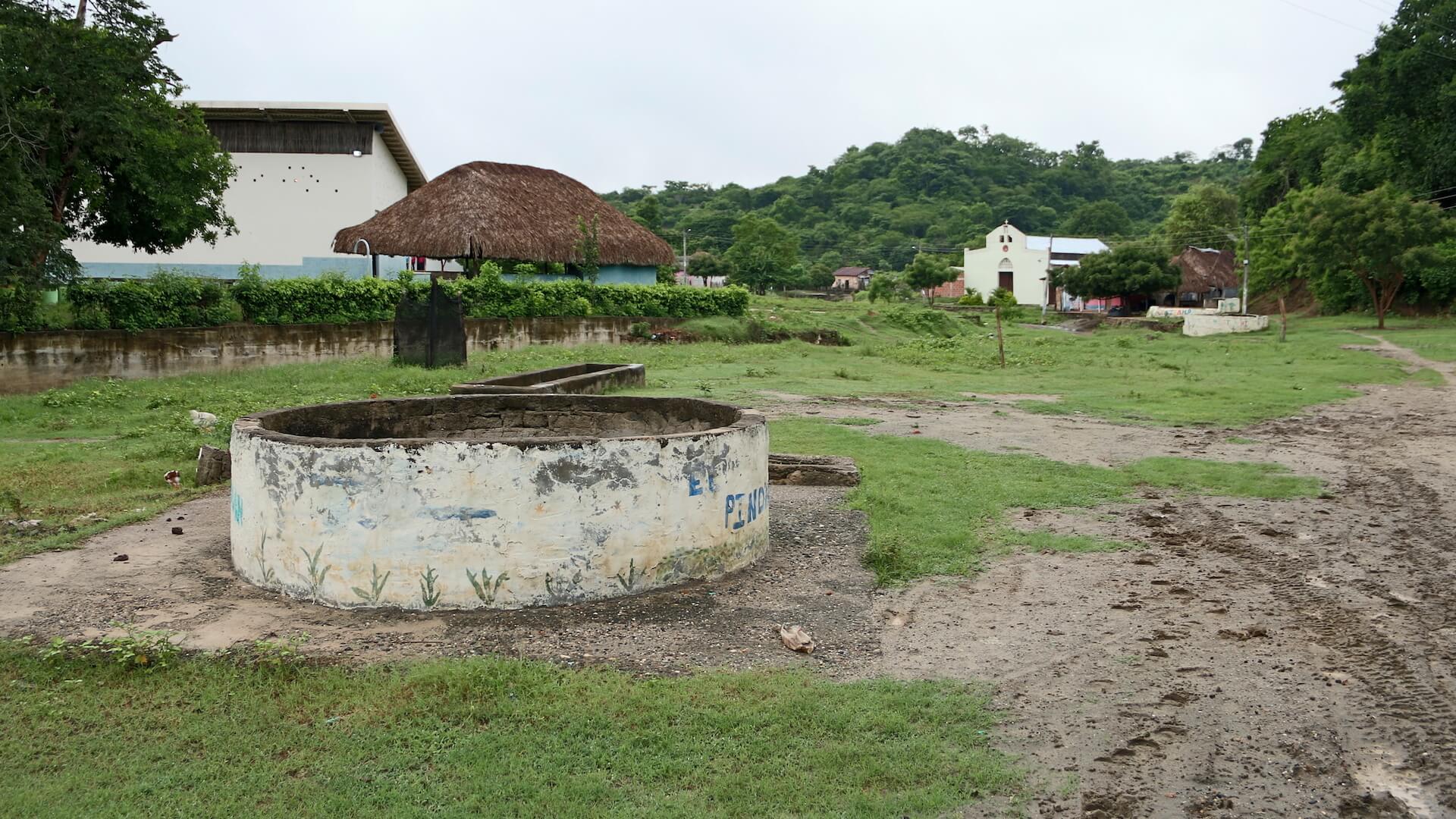
Our land
Location
The village of El Salado is located 19 km from the capital of the municipality of Carmen de Bolívar, to which it belongs.
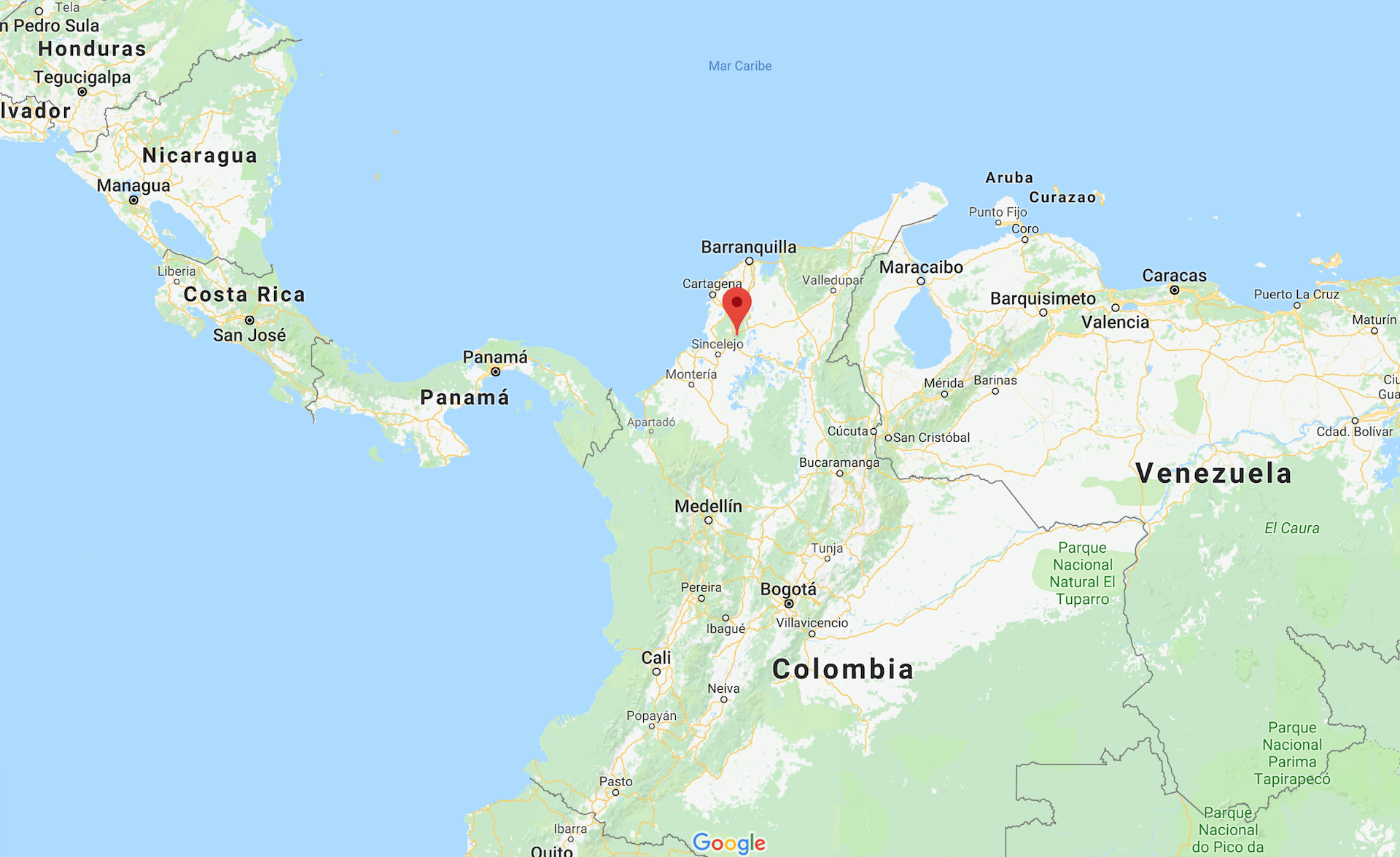
Our land
Demographics
- 690 Population registered in 1999
- +1,200 kg of tobacco exported
- 100 km from the Colombian city of Cartagena
The Zaperoco
The horror of the armed conflict.
The Zaperoco
The conflict
The history of El Salado changed forever in the middle of February 2000.
The history of El Salado would change forever towards the middle of February 2000
From the mid-nineties, unrest spread in the region with the arrival of the 35th Front of the FARC (Revolutionary Armed Forces of Colombia) led by a commander known as Martín Caballero. The community of El Salado began to fall apart when several peasant families fled.
But the history of El Salado would change forever towards the middle of February 2000, when four fronts of the AUC (United Self-Defense Forces of Colombia) marched into El Salado from several directions. They forced the whole of the population onto the small football field located opposite the cultural centre, and there murdered 66 people in front of friends and family.
As a result, the close to 7,000 inhabitants of El Salado fled the region, and the area was totally devastated by the violence.
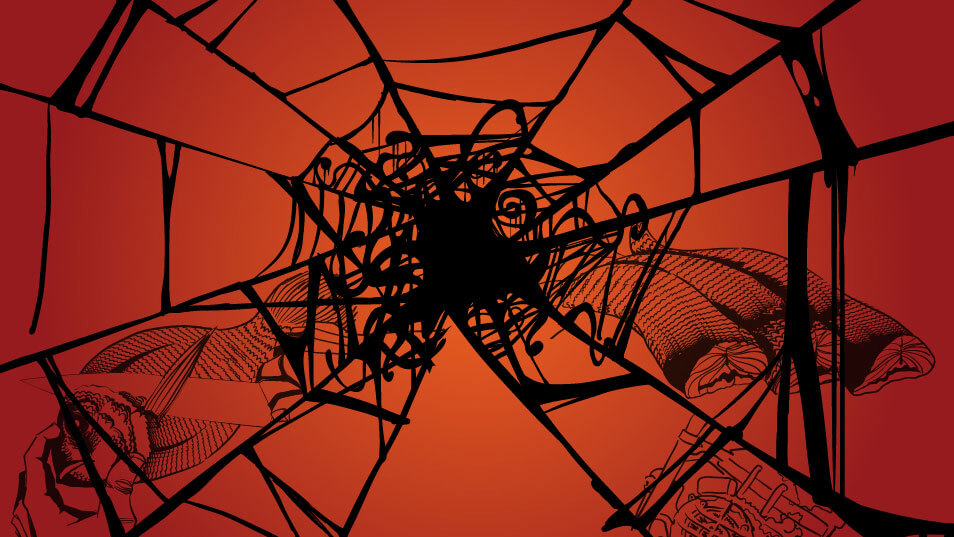
The Zaperoco
The conflict in numbers
- +60 people killed
- 7,000 inhabitants fled their homes
- 400 Paramilitaries attacked the community
Recovery
Despite a total lack of support, the people of El Salado decided to join forces and return to their village in February of 2002.
In 2001 the people of El Salado decided to join forces in an effort to recover their community
Starting in 2001, the families of El Salado decided to get together and recover their community. As a result, and despite receiving no help from any public institution, some 200 families began to make their way back in February 2002. They cleaned the streets, recovered their homes and planted crops again on the outskirts of the community, in the midst of a war that still raged on.
“We got together with a clear aim in mind: to return to our land. We created a project to build El Salado up once again” says “Lucho” Torres, a farmer and community leader. “We sold our surplus products, once our own subsistence needs were covered. And we also grew tobacco to sell to Europe and Japan.”
Sixty-six percent of the families in El Salado own a business or grow crops to generate income, although only 20 percent do this on a permanent basis. For those with permanent enterprises, average monthly income is COL$ 576 000 (less than the legal minimum wage), while the average for non-permanent enterprises is COL$ 337 000 (approximately €135). The community therefore faces great difficulty in paying for basic needs such as public services, food and access to education.
The issues with greatest impact on living conditions are those which require significant investment in physical infrastructures, such as repair of floors and walls in homes, and the extension and improvement of water supply and drainage infrastructures. Despite having a water supply system, El Salado had no access to drinking water, and this affected health levels and hampered the community from reaching its full productive potential, thus entrenching poverty.
Recovery
The pride of the people of El Salado
“We got together with a clear aim in mind: to return to our land. And so we came up with a project to build El Salado up once again.” Luis Torres “Lucho”. Farmer and Community Leader.
Luis Torres "Lucho", villager and leader of the community
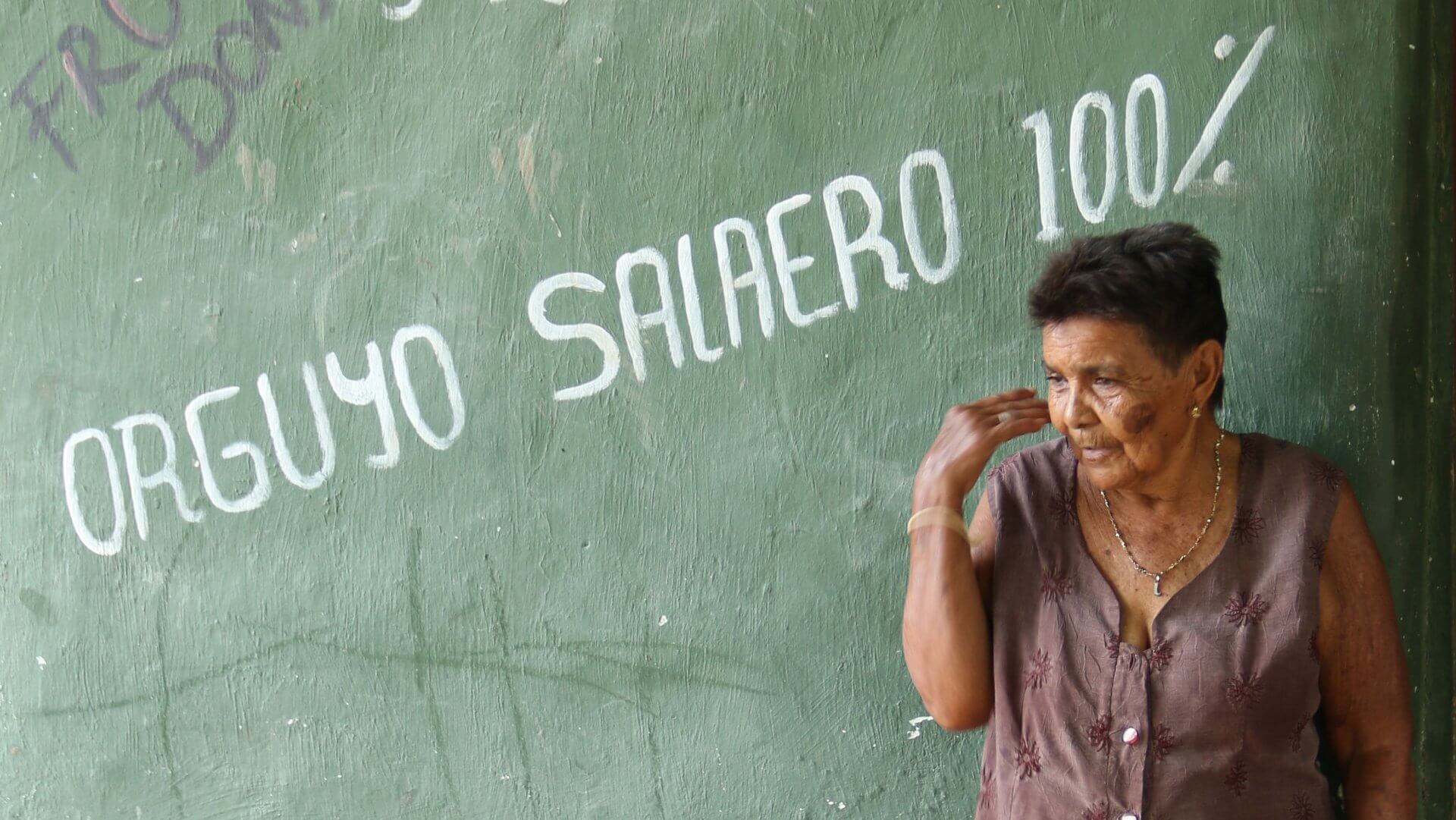
Recovery
In numbers
- 57 families got together to plan the return home (Beginning of 2001
- 150 people returned to El Salado (November 2001)
- 3 days a week, 3 hours a day (The only time they had drinking water)
A new beginning
Ferrovial, the NGO Ayuda en Acción and Fundacion Semana are three organisations that have helped the people of El Salado to return home.
El Salado’s water supply system is the only system within the water network of Colombia’s Caribbean region to operate exclusively on solar power.
The community of El Salado was selected for the project due to the fact that it had been affected by the armed conflict, its population had suffered displacement, and those returning had to endure poor living conditions (especially as regards access to drinking water).
Within the framework of a process which aims to financially recover and rebuild the village of El Salado (with long-term integrated regional development promoted by Ayuda en Acción and local partner Fundación Semana), proposals were put forward to invest in the restoration, improvement and extension of the water supply system to provide a continuous supply of quality drinking water to 1,290 direct beneficiaries, with a further 990 indirect beneficiaries.
The project has both a technical and a social component. The technical component comprises restoration of some of the existing structures and the building of new ones to extend the system. The social element of the project aims to mobilise the community to oversee and maintain valuable water resources. For this purpose, decision-making structures such as the Infrastructure Board, the Oversight Committee and the Administrative Board of the Water and Sewage Systems of El Salado have been strengthened. This process aims to ensure the proper functioning and sustainability of the water supply system in the long term, thus contributing to an improvement in living conditions.
Project implementation
Following a number of visits for needs assessment by Ferrovial Social Responsibility technical staff, and the work of 8 joint committees on project management, four Ferrovial employees carried out a field visit to contribute technical knowledge for complementing and strengthening the proposals made by Ayuda en Acción and Fundación Semana.
After 15 days of field work with the local NGO teams, El Salado community members and the local water and infrastructure boards, a report was prepared with recommendations for complementing and improving the solutions proposed for restoration of the water supply system. Most important was the provision of a water pumping system powered by solar panels, which would drastically reduce the community’s energy consumption.
New project design
Following the report with recommendations y Ferrovial volunteers, a new project design was drawn up.
The new project design comprises a solar pump system to reduce overhead costs. The pump system will operate during the day, so no battery will be required. This technology means that there is no need for mains grid connection, and this will reduce operating costs, an issue which is particularly relevant in El Salado, since one of the reasons for the current system not working continuously is the high cost of electricity required for pumping. Water will be stored in newly built tanks. Water pipes will be repaired where necessary, and protected where there is a risk of damage through exposure.
As for the social element of the project, the aim is to mobilise the community and build its capacity to protect valuable water resources. For this purpose, decision-making structures such as the Infrastructure Board, the Oversight Committee and the Administrative Board of the Water and Sewage Systems of El Salado have been strengthened. This process aims to ensure the proper operation and sustainability of the water supply system in the long term, thus contributing to the health of the community and to better living conditions.
Innovation and sustainability of the water supply
El Salado’s water supply system is the only system within the water network of Colombia’s Caribbean region to operate exclusively on solar power. This is a huge advantage for the community, given that it solves one of the main constraints of the system, namely the cost of electricity for operating the water pump.
Contributions by the community can therefore be largely assigned to system maintenance, thus ensuring sustainability in the long term. Moreover, this continuous energy supply means that there are no gaps in water supply due to poor service standards from the local electricity provider.
Water quality
El Salado’s water supply system was previously not treated. An analysis of the water quality being supplied concluded that the water was not fit for human consumption, and the decision was taken to implement a chlorination system to treat the water. Following implementation of the treatment system, concentrations of residual chlorine were measured at specific points of the system, with the results giving values ranging from 0.5 mg/l to 1.5 mg/l. These amounts are enough to eliminate any pathogens present in the system, which means that the water is now fit for human consumption.
Social component: Organisational and community strengthening
This project stems from the community itself, and was fully funded through private investment and local contributions from Ferrovial, Ayuda en Acción, Fundación Semana and the community of El Salado. This is a crucial consideration, since the solution implemented was fully in accordance with the specific needs of the community, rather than being proposed by a third party with no real knowledge of conditions on the ground.
A new beginning
Community project
“There was a movement in Colombia to recover El Salado for the community, to enable them to return and rebuild their life. We helped to modernise water infrastructure for 1,500 people."
Juan Francisco Polo, Corporate Social Responsibility and Communications Manager, Ferrovial
A new beginning
The project in numbers
- 300 households receive water from the new supply system
- 500 metres of piping installed
- 1,290 beneficiaries
